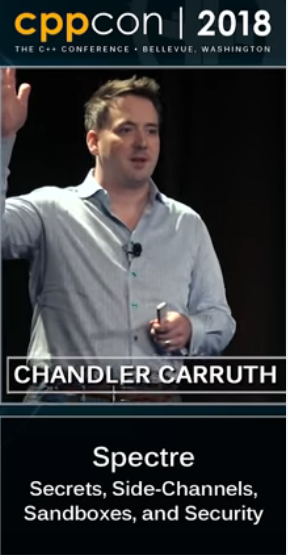New Pluralsight Course: Introduction to Data Structures and Algorithms in C++ -- Giovanni Dicanio
A new course was published in the Pluralsight library:
Introduction to Data Structures and Algorithms in C++
by Giovanni Dicanio
From the article:
In this course, you’ll learn how to implement some fundamental data structures and algorithms in C++ from scratch, with a combination of theoretical introduction using slides, and practical C++ implementation code.
No prior data structure or algorithm theory knowledge is required. You only need a basic knowledge of C++ language features.

 Are you using it?
Are you using it?
 The 5th episode of the 'most useful C++ links' is now available:
The 5th episode of the 'most useful C++ links' is now available: The CppCon 2018 closing keynote is now on YouTube:
The CppCon 2018 closing keynote is now on YouTube: